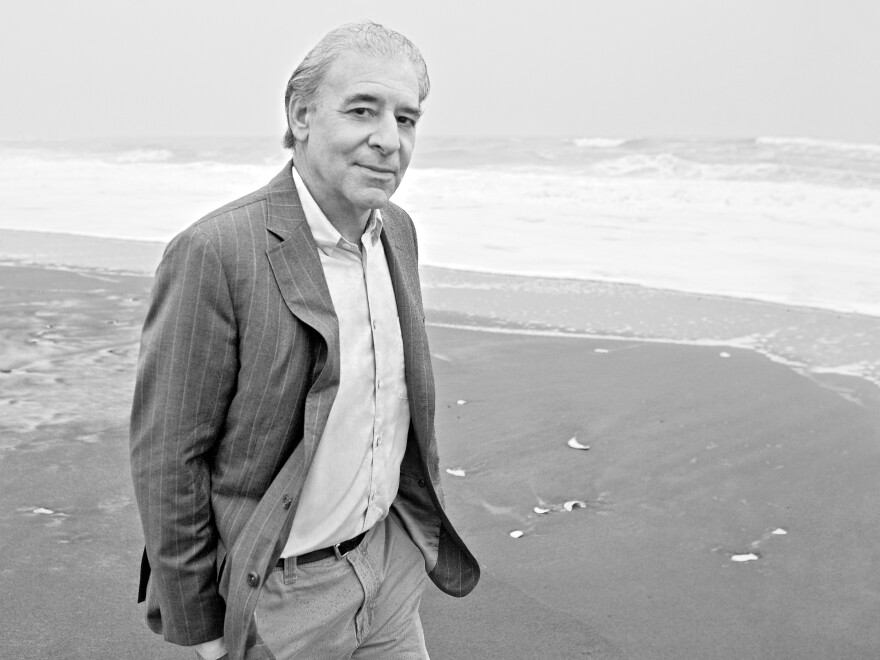Alan Furst is fixated on a place on the verge of all-out war — and his many readers are grateful for his obsession.
Furst is the wonderfully inventive author of a series of novels set in Europe on the eve of World War II. He's often been compared to John le Carre, Graham Greene and other masters of fictional espionage. But it's time to consider him on his own merits.
The cause for this celebration is Furst's latest gem, Mission to Paris. What's remarkable is not only the strong cast of characters he invents, but the moral choices they must make under the most trying of conditions. Better still, the settings of Furst's novels take equal billing with the characters, so real is his evocation of the time and place.
Although Furst returns again and again to pre-war Europe, there's nothing formulaic about his novels. Each stands on its own, though hard-core fans will occasionally notice a familiar character or two. But what's most appealing is the mood, and the suspense. This is historical fiction in the best sense of both words.
All of his books are set in a frightening time, as the Continent moves inexorably toward war. There are harsh conditions, dark shadows and plenty of spies, to be sure. But there's also good food to be had and just enough sex (and sometimes romance). And it's heartening when so many smart, savvy people help one another to survive. Plus a lot of the bad guys get what they deserve in the end.
In his latest book, Furst conjures up movie star Fredric Stahl, twice nominated for an Oscar, who steps smartly into the caldron of late 1930s Europe. "I was born in Vienna, wandered about the world for a time, lived and worked in Paris, then, in the summer of 1930, Hollywood. I'm an American now," Stahl tells a woman he meets on a ship sailing to Paris.
Stahl thinks his mission to Paris is to make a film for Paramount France, called Apres la Guerre or After the War. But nothing is simple in Europe in 1938.

Yes, Stahl gets to make his movie. But not before he gets entangled with all sorts of characters, and gets caught between a secret bureau operated by the Reich Foreign Ministry and a spy service operated by the American embassy in Paris.
Furst's writing pulls you along throughout, and always with a sense of mystery. "Le Havre was only two hours from Paris but the land between was France, dark and silent and very old," he writes.
His descriptions of places — and sensations — often contain an unexpected twist; they clue you in but also leave something to your imagination. A liqueur is described as being made of "mountain herbs, secret herbs — a strange taste, sweet at first, then something more."
Stahl is a different kind of narrator for Furst, more of an innocent bystander to the world of espionage than we're accustomed to from him. His previous novel, Spies of the Balkans, focused on a Macedonian police detective. The Foreign Correspondent pivoted around the editor of a clandestine newspaper opposing Italian fascism.
All Stahl wants to do is finish his movie and return to Hollywood. But he gets a quick education in the spy business. And though the Nazis and their French sympathizers offer plenty of incentives to join the dark side, he holds fast. He understands their chilling talk of achieving "harmony" across Europe for what it really is.
Stahl's adventures force him to leave Paris for Berlin for a while, ostensibly to attend a film festival, but to engage in some espionage, too. Later, the movie crew travels to a remote part of Morocco. Each of the destinations is well sketched by Furst; the contrast between Paris and Berlin at that time is particularly strong. Back in Paris, Stahl tells a taxi driver, "Who doesn't want peace?" The driver agrees. "But to Stahl it was a dream, a hope," Furst writes. "He'd seen Germany, and he knew there would be war."
Stahl is a complicated guy. He's a glamorous movie star — "When he was on screen, you couldn't take your eyes off him" — who hooks up with glamorous girls. But he saves his heart for someone who in appearance would seem much less desirable.
The weakest part of the book is the movie itself. Neither the screenplay nor the descriptions of the filmmaking itself kept my interest. Luckily the details are relatively brief and have little to do with the primary plot.
By all rights, you'd expect to finish a novel about prewar Europe with a certain amount of relief, having slipped safely from that dangerous era. In truth, I am always disappointed when they end, so caught up am I in the characters and their cunning, and in the mysterious places they occupy.
Copyright 2023 NPR. To see more, visit https://www.npr.org.


